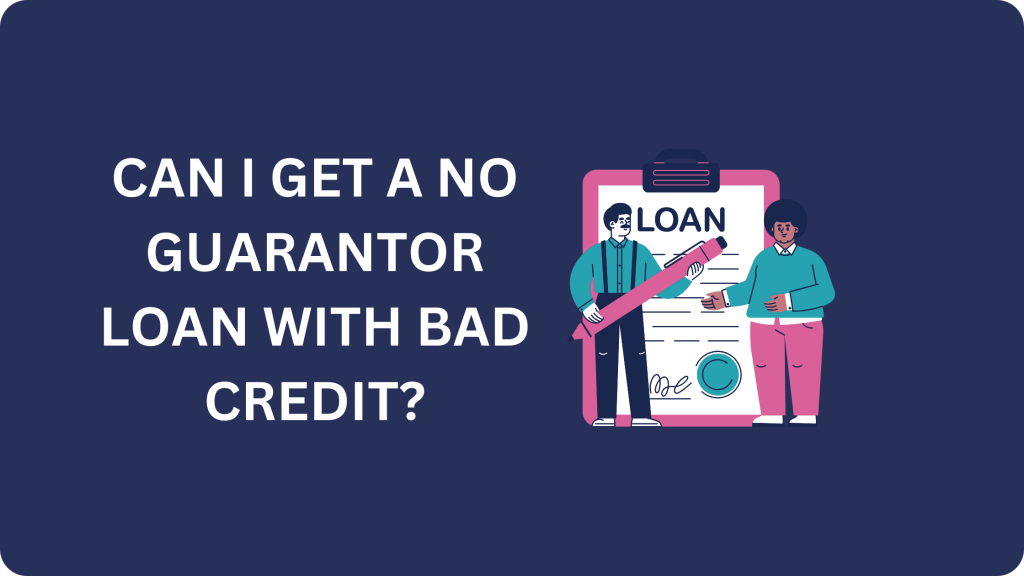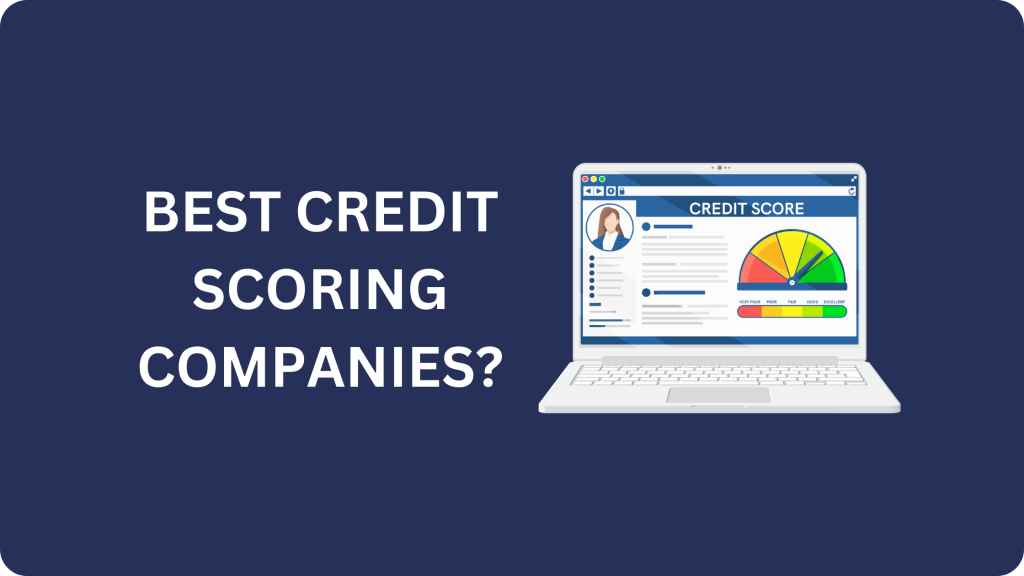





Rates from 12.9% APR
Representative Example: £1,000 borrowed for 18 months. Repayment of 17 Months at £87.22 and final repayment of £87.70 The total amount repayable is £1570.44. Interest amounts to £570.44, an annual interest rate of 59.97%. Representative APR: 79.5% (variable). Maximum rate 1,625.5%. Minimum term 3 months.
BadCredit.co.uk is a broker, not a lender.
Our simple process

Fill in our form
Fill in our 2 minute quote form with your basic information

Get a quick quote
We’ll match you with the cheapest lender from our panel willing to say yes

Cash paid same day*
*Some of our direct lenders pay out on the same day
Why compare bad credit loans with us?

Match with lenders who will say yes
At BadCredit.co.uk, we could help you get the loan you need faster and with less effort. We quickly analyse our panel of lenders for you and present you with the best match, making the whole process of securing a loan easier and giving you significantly better odds of being approved compared to applying to a single lender directly.

Quick lender decisions
We use cutting-edge technology along with our panel of lenders to process applications quickly, which can lead to super fast approvals and even same-day funding from some lenders. But remember, approval speed and funding times might be different depending on the lender you’re matched with, so we can’t guarantee you’ll be funded on the same day.

Soft search technology
We work with a wide range of lenders and brokers, and we compare them without performing a hard credit check on your file. Lenders on our panel carry out a soft search, which only you can see on your credit report. We use the information you provide to pinpoint the lowest cost lender in our network who’s likely to approve your application.
Current best unsecured bad credit loan direct lenders





We’ve compared hundreds of loans and compiled a list of the top 5 unsecured UK lenders who might offer loans to individuals with a less-than-perfect credit history.
Try our eligibility checker to receive a free quote from our panel without impacting your credit score. Keep in mind if, after receiving your quote you formally apply for a loan with a lender they will perform a hard credit check which will affect your credit file.
Keep in mind: our panel may change over time, and we might not compare all lenders featured in our top 5 list.
Frequently asked questions (FAQ)
Some lenders are willing to accept more risk than traditional lenders and offer loans to people with a poor credit score, these are sometimes known as bad credit loans.
Because these loans are for customers with adverse credit histories, they typically come with a higher repayment rate.
If you’re looking for a bad credit loan, you’ve probably checked your credit file with one of the credit scoring agencies and found that your score could be higher, or you have been refused credit from a lender of finance company.
It’s important to be aware of your credit score before applying for a bad credit loan as there may be ways to improve your score quickly, allowing you to find a cheaper loan.
Whether or not you can get a loan with bad credit will depend on a few factors such as:
- Your credit history
- Your income
- Your affordability
- Your existing debts
We have a panel of 30+ lenders that we can match you with without doing a hard credit search (the lender will do a hard search if you formally apply though).
Our soft search loan matching form allows you to input your details in just a few minutes and then we will ping the lenders on our panel and find which ones want to lend to you based on your circumstances.
Once we’ve matched you with a lender you can see full details of the loan offer including the costs and repayment terms, then you can decide if you want to formally apply for the loan.
Unfortunately, we cannot guarantee you can get approved for a loan online (as much as we would love to!)
If you make use of our free eligibility checker, and you show lenders you have the means to pay back any money that you want to borrow, your odds of acceptance improve significantly.
Getting approved by a direct lender for a bad credit loan depends on your personal circumstances.
If you’ve got a job, can pay back the money you want to borrow, and don’t have any bankruptcies or CCJs in your past, you’ve got a better chance of being accepted by a lender from our panel.
As you may already be aware, some credit checks or loan rejections can have an adverse effect on your credit score.
However, when you apply for a credit product through BadCredit.co.uk, you can rest easy knowing your score will not be negatively impacted by hard credit searches.
We execute a soft search to identify the ideal lenders for you, which does not negatively impact your score. Then, when you do make a formal application, these lenders will perform a hard check. However, you are much more likely to get accepted, as we have done the hard work for you and identified suitable lenders.
The amount you will be able to borrow depends entirely on your personal situation. However, there is a quick and easy way to find out.
Use our free eligibility checker, inputting how much you want to borrow over what period, and we will provide you with an insight into what lenders might offer you.
Don’t worry. This checker has no impact on your current credit score as we only perform a soft search. Your hard search will be conducted by a lender if you decide to make a formal application.
If you have bad credit, it may be more difficult to get a loan from a traditional lender, but it is not impossible. We have a panel of lenders who lend to people with a bad credit history and we can match you with a lender who will say yes based on your information. Complete out eligibility calculator and we could match you with a lender who wants to lend to you.
If you have a bad credit score the type of loans you’re most likely to be approved for would be loans that require some form of collateral as security such as:
Guarantor Loans
Logbook Loans
Secured Loans
Secured Loans
These loans are typically easier to secure as they reduce the risk involved for the lender. If you don’t pay the loan back the asset you’ve offered as collateral will be taken to fund the repayments or, the guarantor backing your loan could have their score affected.
Pros of Loans for Bad Credit:
- Accessibility: Provides financial access to those with poor credit history
- Second Chance: Allows individuals to rebuild credit if they maintain timely payments
- Immediate Relief: Offers quick financial assistance in emergencies.
- Diverse Options: Various lenders offer tailored products for bad credit.
Cons of Loans for Bad Credit:
- High Interest Rates: Typically come with significantly higher interest rates.
- Expensive Fees: May include extra charges and fees.
- Debt Trap Risk: Potential to lead borrowers into a cycle of debt.
- Predatory Lending: Some lenders might exploit borrowers’ desperation.
- Short-Term Solution: Might not address underlying financial problems.
In general, the easiest loan to get with bad credit is a secured loan. That’s because the lender can use assets as collateral. Hence, lenders feel more confident about getting their money back if you can’t pay back the loan. Examples of collateral with secured loans include assets like your home or car. These assets may be repossessed if you fail to pay the loan.
Guarantor loans are another easy loan to get with bad credit. This loan type designates a family member or friend as the guarantor. This means they have to pay back the loan if you’re unable. Choosing a guarantor loan can increase your chance of getting a loan and a higher amount. However, the interest rates with such loans tend to be high. The downside of this loan type is the potential to get a family member or friend into debt.
Yes, there are lenders who will lend you money with bad credit, but it’s not guaranteed. Also, if you have bad credit, then the amount you can borrow is usually lower, and the interest rates are higher.
Furthermore, it depends on your credit score, which is a track record of your financial health. However, a hard credit check goes on your credit history and can contribute to a negative credit score. Fortunately, here at BadCredit.co.uk, we perform soft credit checks, which are recorded on a customer’s credit file, but 3rd parties doing a credit check can’t see it.
Getting a loan with bad credit will still depend to some degree on your credit score, which is a track record of your financial health. However, a hard credit check goes on your credit history and can contribute to a negative credit score. When matching you with a lender, we perform soft credit checks, which won’t negatively impact your credit score. If you formally apply with the lender we match you with, a hard credit check will be performed.
Many of the lenders on our panel specialise in lending money to people with bad credit.
You can borrow money ASAP with bad credit by getting a quote here at BadCredit.co.uk. We instantly compare 30+ lenders, and some of them may provide same-day approvals. Depending on the time of day that you request a quote, you may get the funds in your bank account within a few hours. However, we cannot guarantee this since it depends on various factors outside our control.
You could get a loan to pay off debt with bad credit by getting a debt consolidation loan. This loan is the act of paying off old loans with a new one. The strategy can save you money since you could combine multiple high-interest loans and pay them off with a lower-interest loan.
Therefore, with a debt consolidation loan, your monthly repayments might be lower. You could also extend the loan repayment period to give you more time compared with the original loans.
However, there are some pitfalls with a debt consolidation loan. Firstly, your credit rating may get worse since you’re taking out another loan. Also, you may end up paying more in interest if you opt for a longer repayment term.
The types of loans that you can get with poor credit include:
- Personal loans: You can receive personal loans with poor credit, but the interest rates may be high. Also, your loan amount may be limited.
- Secured loans: This type of loan involves using an asset (home, car, etc) as collateral, which you could lose if you fall behind on the repayments. Lenders use collateral as a way of reducing risk when dealing with borrowers who have poor credit.
- Guarantor loans: You can use guarantor loans to ask someone with a good credit rating to make payments on your behalf if you cannot. Lenders will check the credit rating of the guarantor to determine how much money to loan.
- Debt consolidation loans: Using debt consolidation loans, you can combine several loans into a single one. This is done using the debt consolidation loan to pay off several other loans. This can potentially save you money and secure more favourable terms.
- Credit union loans: Those with poor credit can get credit union loans from not-for-profit organisations. You’ll need to join a credit union, but membership is typically limited to specific geographical areas and professionals.
Generally it is not a good time to get a bad credit loan when the interest rates are high. That’s because you’ll end up paying more money back to the lender during the repayment period. However, if you do need to borrow money when interest rates are high, shop around and find a competitively-priced lender.
Here at BadCredit.co.uk, you’ll find 30+ lenders, giving you more likelihood of potentially match with one charging a lower interest rate (this isn’t guaranteed). Bear in mind that getting a quote is no obligation and you don’t have to go ahead and formally apply with the lender match you with. You could also consider holding off on a loan until the interest rates have dropped.
Pros:
- Accessibility: Most of the lenders on our panel are open to taking more risk and could offer loans to those with a low credit score. It’s a viable solution for borrowers with a bad credit history. Therefore, it’s a loan type you could turn to when you’re refused credit elsewhere.
- Second chance: You could potentially improve your credit score with a bad credit loan if you make timely payments. If your credit score improves you may be able to benefit from loans with a lower interest rates in the future.
- Immediate relief: A bad credit loan could provide emergency funds to get you out of a tight financial situation. You could get a loan approved on the same day, but there’s no guarantee since it depends on many factors.
- Diverse options: Various lenders provide tailored products for bad credit, so you could find the terms you feel are fair.
Cons:
- High-interest rates: Bad credit loans usually have higher interest rates, so you’ll end up paying back more compared to regular loans. Lenders need to increase interest rates for bad credit loans to offset their risk. As a rule of thumb, the lower your credit score, the higher the interest rate you’ll need to pay.
- Damage your credit score: If you miss repayments, your credit score will take a hit.
- Debt trap risk: Borrowing money with a bad credit loan can lead to a cycle of debt that you may struggle to overcome.
- Predatory lending: Some lenders try to exploit the desperation of borrowers in a difficult financial situation by offering unfair terms.
- Short-term solution: A bad credit loan may be a short-term solution that doesn’t deal with the underlying problem.
It might be better to get a loan with bad credit instead of a credit card. That’s because credit cards designed for bad credit usually have higher interest rates compared to loans. Therefore, you might end up repaying more money with a credit card.
However, the reverse could be true, so it depends on the lenders you choose. You should shop around by comparing bad credit loans and credit cards to give yourself more options.
You will be dealing with a direct lender when you have bad credit, but you could find those lenders with a comparison website like BadCredit.co.uk. This might save you time since comparison websites organise and summarise a number of lenders to bring you the best deal.
Once you’ve found a matching lender on a comparison website and formally apply, you’ll be dealing with them directly. They are the company that’s actually lending you the money, and you’ll have a contract with them.
When you are taking out a loan with bad credit, you need to consider the interest rate, hidden fees, repayment period, and monthly repayment amounts. Also, you’ll need to consider your ability to make the repayments on time. Failing to repay on time will lead to a worse credit score.
Your credit score might rise if you pay back a loan on time. However, it’s not guaranteed since many factors determine how your credit score changes. In any case, it’s good practice to pay back a loan on time. That’s because if you miss payments, your credit score could decrease.
Compare your credit score before and after paying back a loan to see if there’s a change.
When you are unable to repay a bad credit loan, you might be charged a fee and interest for the missed payments. Also, it might have a negative impact on your credit score. It also depends on the amount of time that has passed since the missed payment.
For the first 30 days, the lender may not take action. However, the lender may begin to put more pressure on the borrower the more time that passes after the deadline. It’s important that you’re clear on the lenders late payments terms before entering a loan agreement.
Consider looking into debt consolidation loans if you’re unable to repay a bad credit loan. Debt consolidation loans could save you money by paying off higher-interest loans with a lower-interest loan. Also, you could increase the repayment length to give yourself more time.
The alternatives to applying for a bad credit loan are:
- Personal savings: You can avoid debt accumulation and paying high-interest rates by using your personal savings.
- Borrow from friends and family: Consider borrowing money from your friends and family. This will help you avoid paying bad credit loan hight-interest rates, and you can get flexible repayment periods. However, it could strain relationships if you fail to pay back on time.
- Credit unions: If you’re eligible to be a member of a credit union, apply, and you could receive better loan terms.
- Secured loans: You may potentially reduce the loan interest rate by offering up collateral, such as a car or home.
- Peer-to-peer lending: Take advantage of platforms that connect borrowers with lenders to potentially receive competitive rates.
- Credit counselling: Seek financial advice from citizens advice to better understand your options and possible debt management plans.
- Consider a Co-signer: You could potentially get better loan terms by adding a co-signer with a good credit score as a guarantor.
- Negotiate with creditors: In some cases, you might get better loan terms by negotiating with the lender.
Bad credit loan guides
 Brokers vs Lenders, Which Should I Use When Getting a Loan?
Brokers vs Lenders, Which Should I Use When Getting a Loan?
Quick answer: Comaprison websites are classed as brokers and can give you a wider scope when searching for a loan…
 Where Can I Get A Loan With Bad Credit And No Guarantor?
Where Can I Get A Loan With Bad Credit And No Guarantor?
Quick answer: You can get a loan with bad credit and no guarantor from several UK lenders. We compare 30+…
 How Do UK Credit Scores Work?
How Do UK Credit Scores Work?
Key takeaways: The UK has three main credit reference agencies, each with different scoring systems, meaning there’s no universal credit…
 Which Credit Scoring Company is the Best?
Which Credit Scoring Company is the Best?
Quick answer: Although their scoring scales differ, all 3 main credit scoring companies offer the same thing. Lenders generally use…
 Do Payday Loans Affect Your Credit Score?
Do Payday Loans Affect Your Credit Score?
Quick answer: Payday loans can impact your credit score in both positive and negative ways. Timely repayment can sometimes enhance…
 Does Getting a Guarantor Loan Affect Your Credit Score?
Does Getting a Guarantor Loan Affect Your Credit Score?
Quick answer: Any loan has the potential to affect your credit score. If you default on repayments then this will…
 £1,000 Loans for Bad Credit
£1,000 Loans for Bad Credit
Key takeaway: Bad credit lenders cater exclusively to those with an unfavourable credit history, and can provide £1,000 loans. Some…
 Payday Loans For Bad Credit
Payday Loans For Bad Credit
Key takeaways: Payday loans can be an option if you have bad credit and need money for an emergency as…
 Car Loans for Bad Credit
Car Loans for Bad Credit
Owning a car used to be seen as a sign of luxury. However, these days, it has become an integral…

